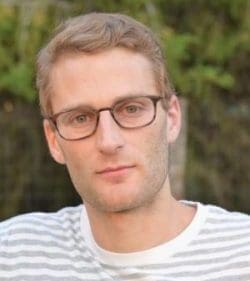Events

- This event has passed.
Complex Systems Seminar: David Goluskin, Assistant Professor, Mathematics and Statistics, University of Victoria
February 25, 2020 @ 11:30 am - 1:00 pm
Venue: Weiser Hall, Room 747

Bio: David Goluskin is an Assistant Professor in the Department of Mathematics and Statistics at the University of Victoria. Goluskin received his undergraduate degrees from the University of Colorado, Boulder, a master’s from Columbia University, and a PhD in Applied Mathematics from Columbia University. His research is in the broad area of applied nonlinear dynamics and incorporates both computation and analysis. Much of Professor Goluskin’s work concerns fluid dynamics, but he also studies simpler ordinary and partial differential equations.
Studying dynamics using computational polynomial optimization
Many complex systems are governed by nonlinear ODEs or PDEs that cannot be solved exactly. Various properties of such solutions can be inferred by constructing auxiliary functions that satisfying suitable inequalities. The most familiar example is the construction of Lyapunov functions to infer stability of particular states, but similar approaches can produce many other types of mathematical statements, including for systems with chaotic or otherwise complicated behavior. Such statements include estimates of time-averaged quantities and extreme transient behavior, approximation of nonlinear stability properties, and design of controls. In many cases, the search for the auxiliary function that implies the strongest mathematical statement can be posed as a convex optimization problem. Such problems can be studied analytically or computationally, but in most cases computation is needed to find solutions that are close to optimal. Of particular use are computational methods of polynomial optimization, where the optimization constraints include polynomial inequalities. This talk will provide an overview of different ways in which auxiliary functions can be used to study nonlinear ODEs and PDEs, as well as how polynomial optimization can be used to implement these methods computationally. Methods will be illustrated using applications to various complex systems.